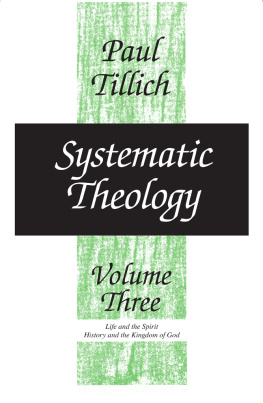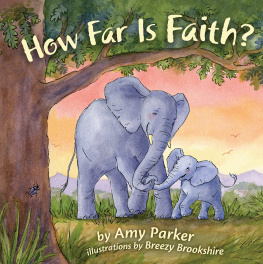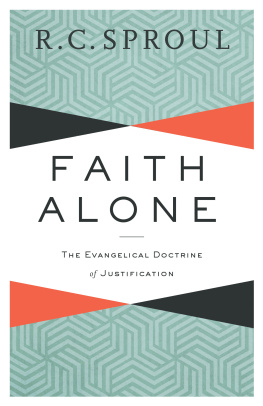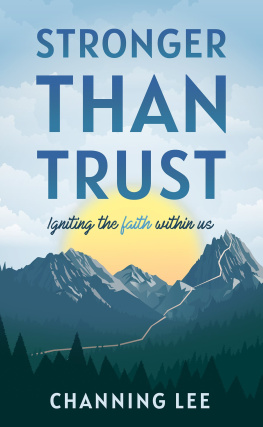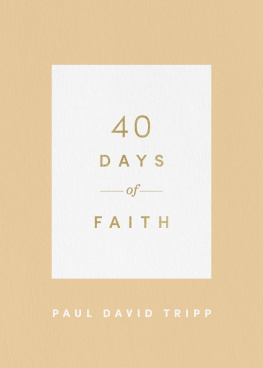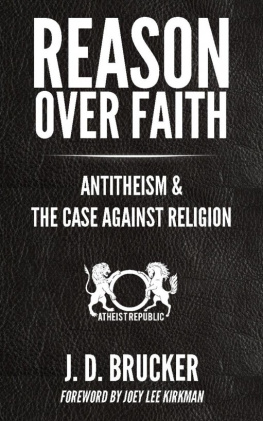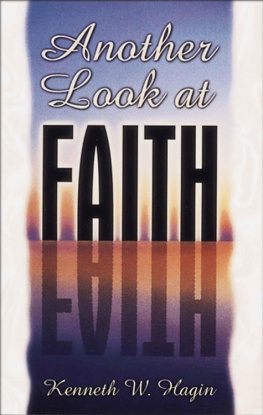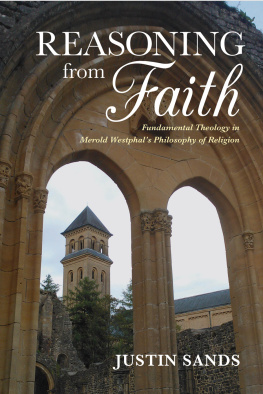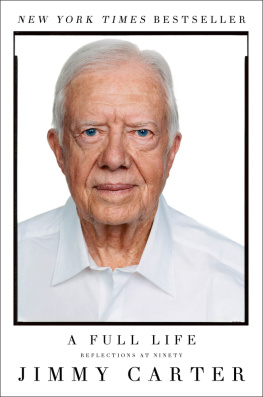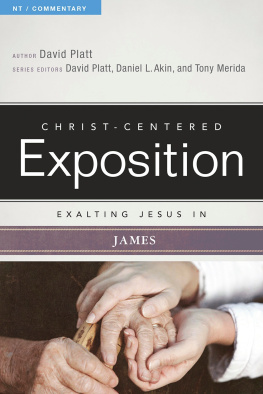p a u l t i l l i c h
DYNAMICS
OF FAITH

Contents

INTRODUCTION TO THE PERENNIAL CLASSICS EDITION

Paul Tillich was one of the great Protestant philosopher/theologians of the twentieth century. His long and extraordinary career took root in his native Germany and flourished in the United States, especially during the last ten years of his life. During that time hundreds of students filled his classes; hundreds and sometimes thousands, both young and old, attended his public lectures and sermons. He was a prolific author, and his books were widely read. The more popular ones, such as The Courage to Be and Dynamics of Faith, became bestsellers. His Collected Works comprise fourteen volumes, not including the magisterial three-volume Systematic Theology (his magnum opus) or his three volumes of sermons. It is not surprising, therefore, that Reinhold Niebuhr, who dominated the American theological scene until the mid-1950s, described his friend and colleague as a seminal theologian.
Tillichs enormous success toward the end of his life did not surprise his colleagues and friends, for he was a mesmerizing master teacher and a charismatic preacher. It is remarkable, however, that his influence became deeper and wider in the last phases of his career, when the opposite might have been expected. His books were read by countless ministers, laypersons, and students across all denominations in American Protestantism, and his work engaged the attention of many who had little or no relationship with either the Christian churches or with organized religion.
Tillich, moreover, was a deeply loyal man who remained faithful to his own calling. At an early age he was drawn to theology and philosophy, and cast aside earlier dreams of becoming an architect. He was a humanist in the fullest sense of the word: he was filled with a high personal sense of the character of civilization. He remembered important lessons he learned from his teachers and friends. Wilhelm Pauck, the historical theologian who was his close friend and colleague, referred to him as an autobiographical thinker.
Paul Johannes Oskar Tillich was born in 1886 in a tiny village in Prussia, Germany, where his father was a high official in the Evangelical Prussian Lutheran Church. His early youth was steeped in nineteenth-century optimism, encouraged by the sound of military marching bands and made secure by a feudalistic monarchy. Until his fourteenth year, he lived in a small medieval town in Brandenburg in the middle of Prussia. Gothic churches and old houses gave him a feeling of continuity. Later on, he lived in Berlin, which ignited his passion for big cities. As a child, Tillich lived a life of dreaming innocence. He played with his younger sisters in a garden surrounded by high walls. He was a little bit in love with his mother, who died when he was seventeen. In some ways he sought to replace her ever after. He also loved his father, but he was in awe of him. In discussions with his father at an early age, Tillich wondered aloud about the idea of nothingness, i.e. the Greek philosopher Parmenides question, Why is there not nothing? For the young Tillich, his fathers authority was both personal and intellectual; it was, therefore, difficult for him to question his fathers orthodox views about Christian thought without feeling guilty.
As it happened, when he attended the universities in Halle and Tbingen, Tillich was given the chance to question authority as often as he wished. At Halle he was influenced by the systematic theologian Martin Kahler, who combined a sympathetic understanding of the faith of the Protestant reformers, especially Luther, with an openness to the humanism of the German literary classics, especially Goethe. Tillich was indebted to Kahler for a constructive understanding of the doctrine of justification by faith. Moreover, he found himself stimulated to apply its meaning also to the realm of intellectual thought. This means that we are justified by becoming acceptable in Gods sight even though we are sinners but also when we are doubters. Tillich, therefore, never became dogmatic. Kahler introduced the idea of mediation to Tillich, who in later years wrote an autobiographical essay titled On the Boundary, describing his existence as between philosophy and theology, between human culture and religion, and between the secular and the sacred. Kahler also suggested to Tillich that the Christian faith is not centered in the Jesus of history, but in Jesus as he is believed to be the Christ, i.e. the Messiah and Redeemer.
While in Halle, Tillich also studied with Fritz Medicus, a docent of philosophy who later occupied the philosophical chair at the Zurich Institute of Technology. He suggested that Tillich write a dissertation on the works of Schelling. Tillich absorbed Schelling to such an extent that the latters ideas became part and parcel of his own work, especially the conception of themes like the Kairos (the right time) and the demonic. Tillich remained faithful to Kahler and Medicus throughout his life.
Tillich was a member of a famous corporation of students: the Christian student fraternity known as Wingolf. He was the first officer of its chapter at the university, and he presided over many lively discussions about the principles that were to guide students in their common life. He recalled those times in a famous letter written to Thomas Mann (23 May 1943): What I have become as a philosopher, a man, I owe partly to my professors but mostly to this fraternity. The theological and philosophical debates we had then till late after midnight and the personal conversations in which we were engaged before dawn, have remained decisive for my entire life. It should be noted that Tillichs style of discussion and debate was never confrontational; Reinhold Niebuhr called him a pacific theologian.
Shortly after Tillich had finished his doctoral program and had established himself as a pastor in the Evangelical Prussian Lutheran Church, the First World War broke out. He enlisted and became an army chaplain on the German front. Tillichs youth thus came abruptly to an end. He had been steeped in the spirit of the nineteenth century, with its confidence in the human ability to master nature and the difficulties of life. During the war, he experienced the breakdown of the self-assurance of this proud civilization. He always remembered that during a frightful night on the battlefield of Verdun he had seen, as in a vision, the end of the era of monarchies and the end of Protestant bourgeois civilization. On that night, as he fearlessly attempted to drag the wounded away from the line of fire, he experienced despair.
Tillich had married shortly before the war began. When he returned to Berlin in 1919, he discovered that his wife had been unfaithful to him and that she was bearing his best friends child. In the midst of postwar chaos and personal distress, he plunged into the vital and sympathetic life of the Bohme in Berlin. He yearned for freedom from the absolute authority he had experienced at home as well as freedom from the suffocating moralism of the Wingolf fraternity. After divorcing his first wife, he married the poetic and artistic Hannah Werner. This marriage lasted until Tillichs death in 1965.
Despite the breakdown of civilization as he had known it, Tillich courageously chose to join other young men of hope who worked to rebuild European culture. In Berlin he belonged to a circle called the Religious Socialists and soon became their most creative thinker and leading spokesman. The group was small and had loyal followers but no political power. Large numbers of Nazis and Communists and splinter parties continued their struggle for power as economic depression and inflation impoverished the German people, and all too soon the brief shining moment known as the Weimar Republic was over. Hitler came to power and the reign of terror began.
Next page

